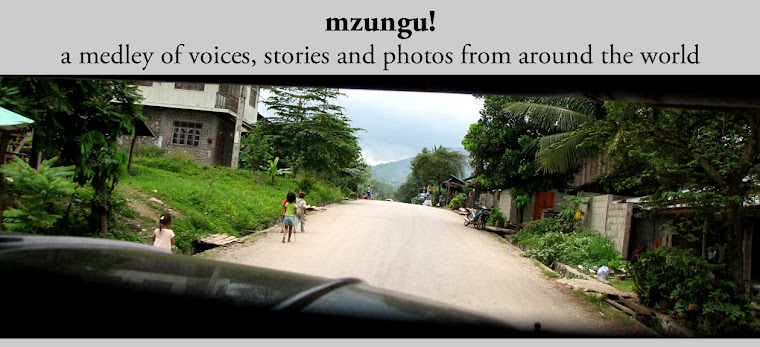It seems that photographers often disregard the living and breathing context around them and do whatever it takes to get the shot that they are looking for, that they 'need.' In the name of publication, in the name of a demanding editor, in the name of promotion, regular social rules are broken and the photographer points a metal box into someone’s face. The outcome is, usually, beautiful pictures that could not be taken if social rules had been adhered to. But I wonder, is it ethical?
Let me give an example. I was at a performance tonight of two well-known musicians from New York. A photographer from the university paper walked up to the stage during the performance, in his gym shorts and bright orange t-shirt, and started snapping pictures of the instruments and the performers. I’m sure they were great pictures, but it was very distracting for the audience, never mind the musicians.
I respect performance space. I’ve had a definite sense of boundaries ever since I gave a piano recital in 4th grade and a boy my age put his chin on the edge, staring straight at my lanky fingers. I wanted to play a scale up the piano and smack him in the face! Performance space is sacred. A photographer breaks the charm and draws attention away from the central space.
The ethics of space becomes messier when placed in a context of poverty. When I lived in Uganda, we would walk around the slums and visit widows and orphans with HIV/AIDS. These people are noble and beautiful, broken and hungry all at the same time. Perfect photographing opportunities, right? When those slick and glossy pictures from World Vision are walking and breathing and living around you, there is an urge to pull out the camera and begin snapping. This is exactly what some western visitors did when they visited the slums. After a brief 'agreement' of a nod from Victim Exhibit A, snap snap! their face is stuck in a metal box. I admit: I’ve done this. But my boss asked me one day, "You are taking away their voice, their face, and what are you giving back?" I began to see this kind of photography as a type of exploitation. Here’s the rich white westerner going into poor dirty slum with fancy camera, capturing images in boxes, and going back home to showcase a brilliant portfolio. What does the "subject" receive? Nothing. "Exploitation: to use unfairly for one’s own advantage." Hm.
This issue of ethics and fieldwork methodology seems to be a fundamental difference between my two degrees--journalism and ethnomusicology. In journalism, you get the shot no matter what that means. Capture the moment, we’re told. Be there. Do what it takes to get a clean background, a neat shot. Ethnomusicology, on the other hand, espouses more of a participant-observation approach. You become part of the scene. Listen. Stay out of the way. Make notes and interact with people, but don’t let your presence affect the scene in any way.
I know that a good argument can be given for the purposes of either side. I know the output of both professions are much appreciated, by different audiences and for different purposes. But how do I be an excellent photographer without being a jerk? I have not yet found a balance that I am comfortable with.
Your comments most welcome!
11 October 2008
Subscribe to:
Post Comments (Atom)


No comments:
Post a Comment